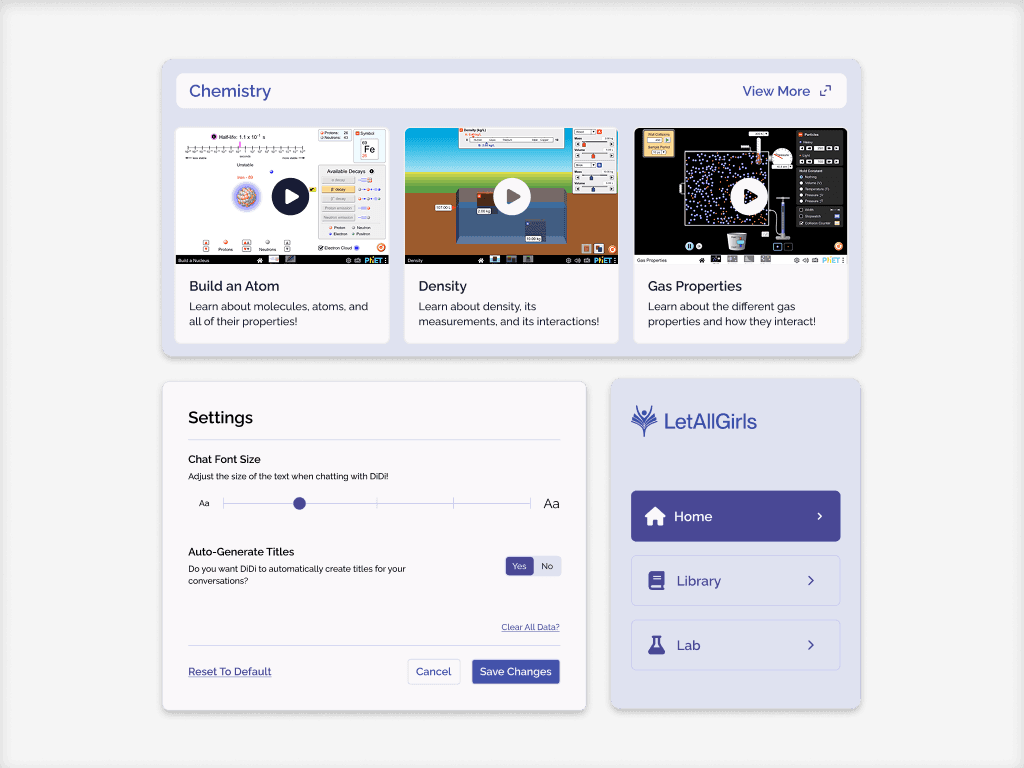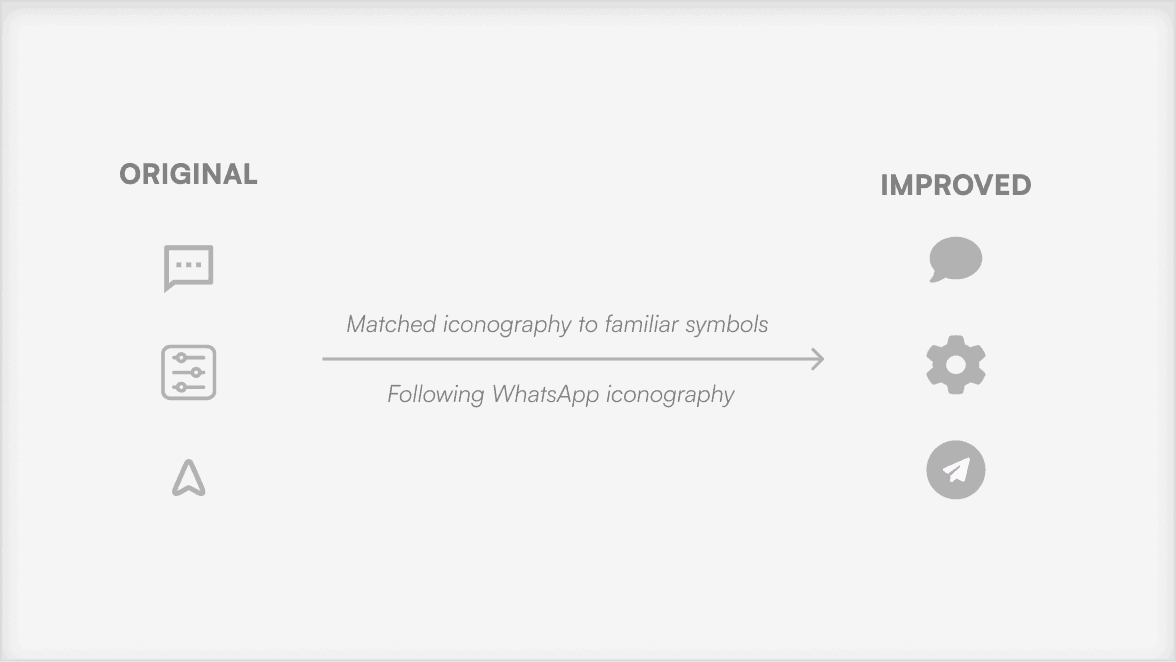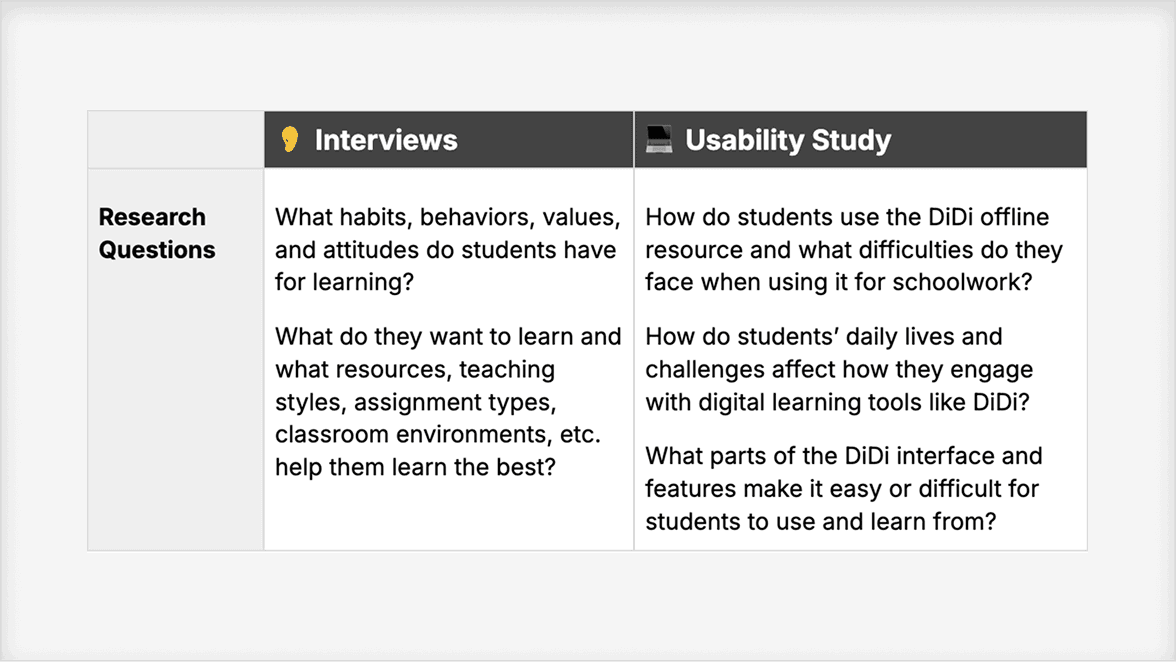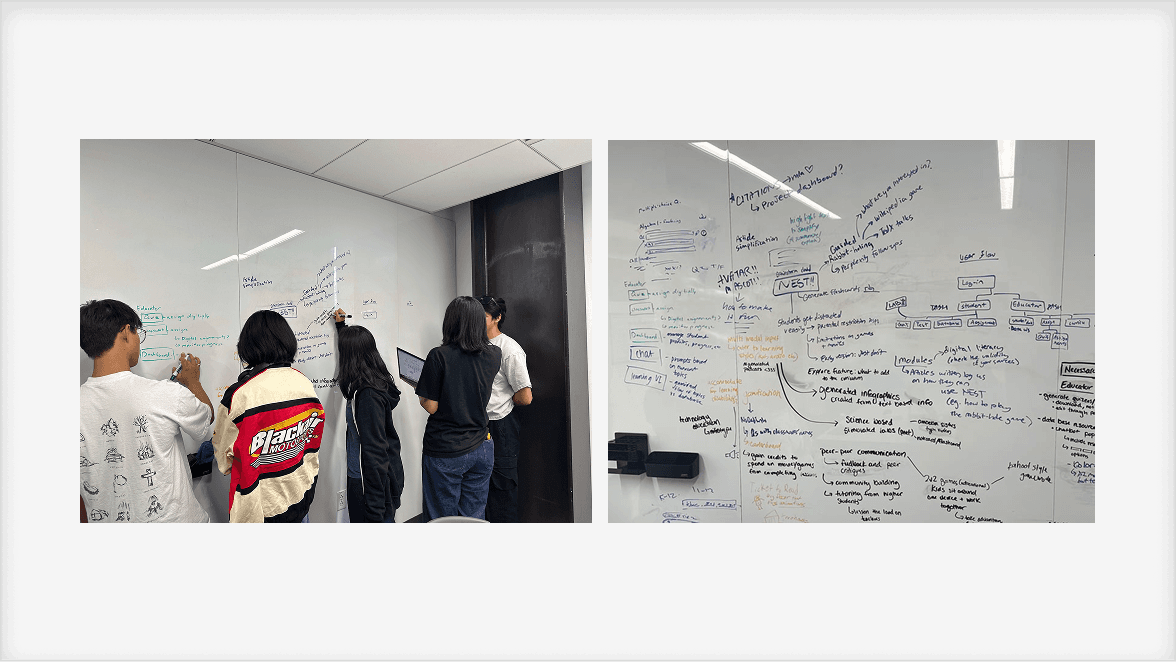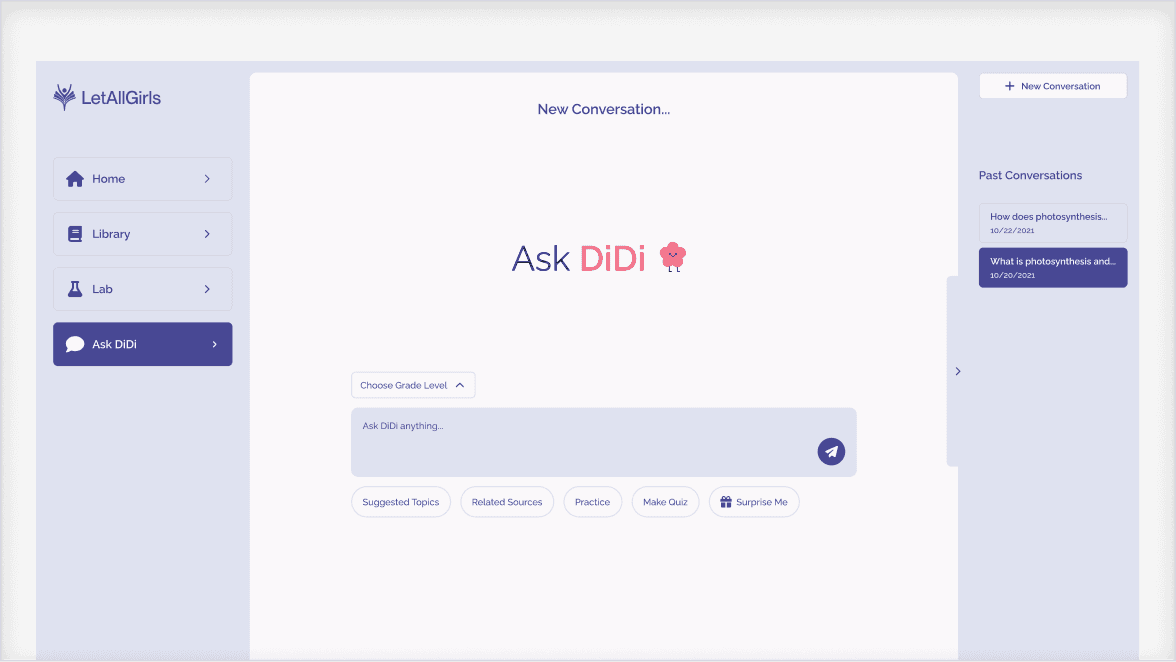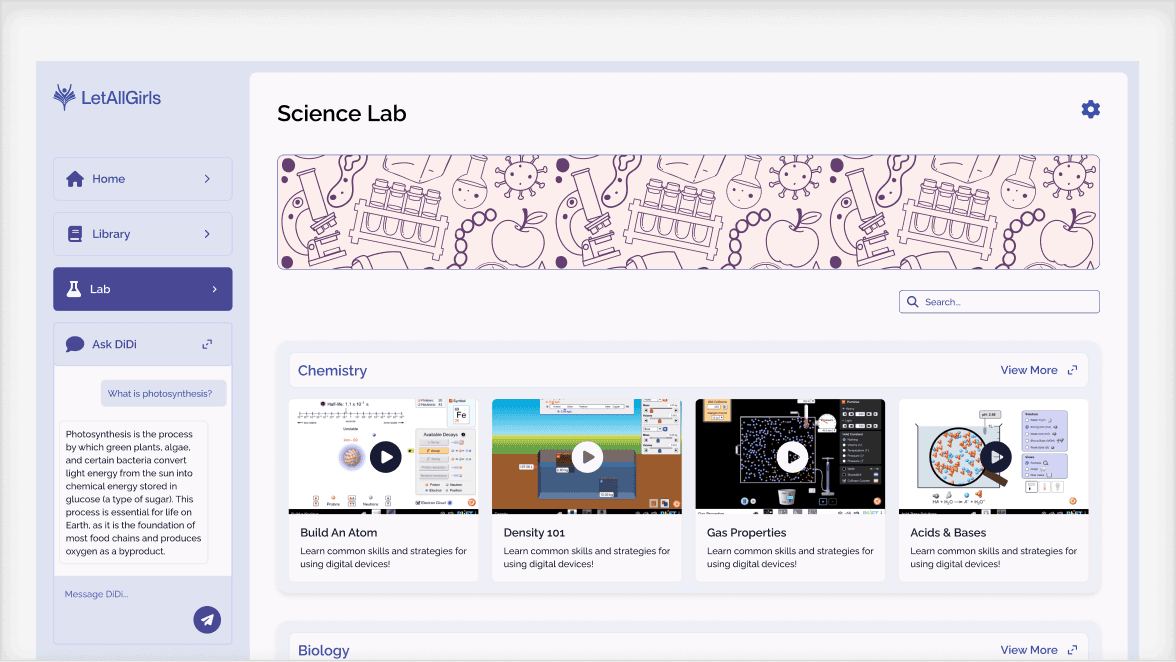Designing culturally responsive EdTech for underserved communities
In November, I joined Guardian, a startup building hardware and software to help underserved communities without internet access receive quality education. I worked with the team as a product designer to design a culturally responsive learning platform that addresses the unique challenges faced by underserved communities in accessing quality education.
BACKGROUND & RESEARCH
UNDERSTANDING THE EDUCATIONAL GAP
For our first pilot, we partnered with a local nonprofit working in South Sudan and Tanzania to conduct user research and understand the unique challenges faced by these communities in accessing quality education.
CULTURAL CONTEXT MATTERS IN EDUCATION
Stepping into this project, I knew that any Western design principles would not necessarily apply to these communities, especially when it came to digital literacy. I learned what digital products were already being used in these communities to apply the same patterns in our design.
PROBLEM
Underserved communities lack access to offline educational tools that respect their cultural context and address their specific learning challenges.
SOLUTION
OFFLINE RESOURCES, INCLUSIVE LEARNING
A digital platform designed to harness the capabilities of offline resources and an LLM using RAG to provide culturally responsive educational content and tools that adapt to the unique needs of different communities.
PROCESS & DECISIONS
RECOGNIZING PATTERNS, UNDERSTANDING FAMILIARITY
A key challenge was questioning our assumptions and learning the patterns of the communities we designed for. For example, we realized our icons might not be familiar, so we changed them to match those commonly used in local software.
RESEARCH DEMANDS STRUCTURE
Designing for people and communities that you don't know is a challenge. I worked closely with the team to outline structure for our research process and ensure we were asking the right questions.
TEAMWORK MAKES THE DREAMWORK
Undoing assumptions and educating ourselves on non-Western design patterns was not an easy task, but working closely with the team and community partners made it possible.
FINAL PRODUCT
BRIDGING THE EDUCATIONAL GAP, RESPECTFULLY AND INTENTIONALLY
Working side-by-side with not only our team of designers, but also our community partners and developers, we were able to work towards a solution that truly serves the needs of underserved educational communities.
Chat with Didi, our culturally adaptive LLM for homework help.
Search our library of offline resources to supplement in-class learning.
Engage with science simulations to engage in application-driven learning.
TAKEAWAYS
CULTURAL SENSITIVITY IS CRUCIAL
Designing for diverse communities requires deep understanding and respect for cultural differences that go beyond surface-level customization.
COMMUNITY INVOLVEMENT DRIVES SUCCESS
The most successful ideas came from direct community input and feedback, not assumptions about user needs. Work with others and broaden your horizons to find the most optimal solution.
99.99% OF THE TIME, YOU WILL FAIL
Iteration can be discouraging, but it is absolutely necessary to ensure that the product is meeting the needs of the community and users.
